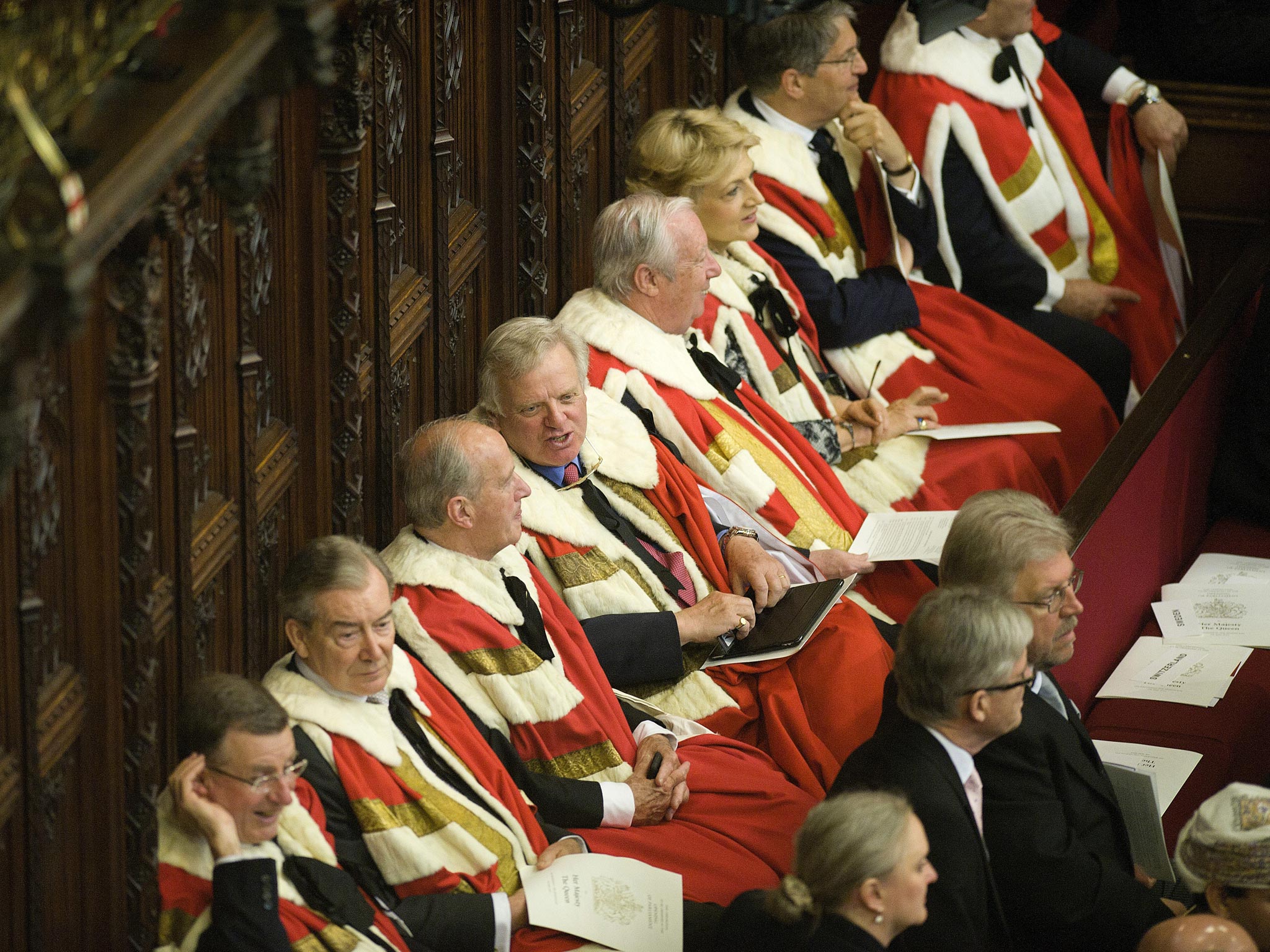Peers banned from lobbying in return for money or rewards
Committee outlines shake-up in Parliamentary rules following exposé by ‘The Independent’

Your support helps us to tell the story
From reproductive rights to climate change to Big Tech, The Independent is on the ground when the story is developing. Whether it's investigating the financials of Elon Musk's pro-Trump PAC or producing our latest documentary, 'The A Word', which shines a light on the American women fighting for reproductive rights, we know how important it is to parse out the facts from the messaging.
At such a critical moment in US history, we need reporters on the ground. Your donation allows us to keep sending journalists to speak to both sides of the story.
The Independent is trusted by Americans across the entire political spectrum. And unlike many other quality news outlets, we choose not to lock Americans out of our reporting and analysis with paywalls. We believe quality journalism should be available to everyone, paid for by those who can afford it.
Your support makes all the difference.Members of the House of Lords are to be banned from lobbying ministers for money in a shake-up of Parliamentary rules following an exposé in The Independent.
Under changes to the Lords Code of Conduct published on Monday, peers will be banned from lobbying members of either the Commons or Lords, ministers or government officials “in return for payment or other reward”.
Staff who work for them and who hold a Parliamentary pass will also be required to register “all third-party employment” regardless of whether or not that employer is engaged in Parliamentary lobbying.
In addition, peers will also have to register any gift or hospitality worth more than £140 compared to the previous limit of £500, bringing them into line with the threshold for Government ministers.
In its report setting out the new rules, the House of Lords Privileges and Conduct Committee specifically mentioned the case of Lord Blencathra as a reason why the changes are necessary. In 2012 The Independent and Bureau of Investigative Journalism revealed the former MP and Tory chief whip was being paid by the Cayman Islands government to represent the interests of its financial services industry.
As part of his job, he lobbied the Chancellor George Osborne to reduce the burden of air passenger transport taxes on the Caymans and facilitated an all-expenses-paid trip to the islands for three senior MPs, including the chairman of the influential Tory backbench 1922 Committee. But a complaint against him was rejected by the Lords authorities on the grounds that there was “no evidence that Lord Blencathra exercised parliamentary influence on behalf of the Cayman Islands Government Office in the United Kingdom” and that he had therefore not breached the rules at the time.
However, in its report on Monday, the committee noted: “As currently drafted [the code] does not explicitly prohibit Members themselves lobbying ministers or officials in return for payment or other incentive or reward.”
It adds: “We do not believe this loophole was intended when the prohibition on providing parliamentary services in return for payment was introduced in the 2010 Code. In addition, recent cases on which we have reported indicate some Members seemed to believe providing parliamentary services in return for payment is within the rules so long as it is registered and, where appropriate, declared. That is evidently not the case.”
A footnote to the report references the Lord Blencathra case. Paul Flynn, the Labour MP who referred Lord Blencathra to the Commissioner for Lords Standards, said he welcomed the new rules.
“The previous rules had a dangerous loophole that was not compatible to the principles of transparency that should be fundamental to public life. The idea a peer could divide themselves in two with one half being a lobbyist and the other being a Parliamentarian was always absurd and I am delighted the Lords Authorities have recognised this.”
The new rules will come into effect after being ratified by a vote of the whole House of Lords. No-one from the Privileges and Conduct Committee was available to comment.
Join our commenting forum
Join thought-provoking conversations, follow other Independent readers and see their replies
Comments